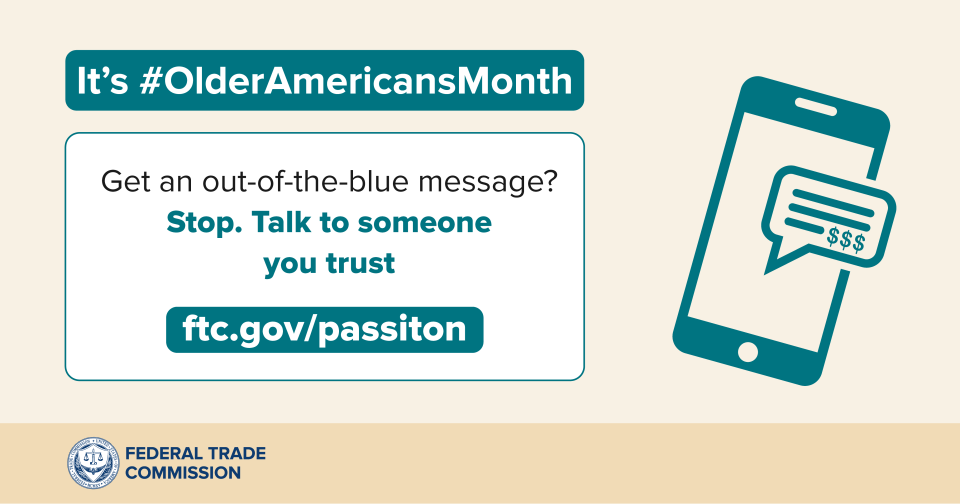
When people encounter scams or bad business practices, they report them to the FTC. And what we’ve learned is interesting. Young adults report losing money to scammers more often than older people do, but when people age 70+ had a loss, the reported median loss was much higher.
So, during Older Americans Month we’re talking about some of the top scams reported to the FTC by older adults — imposter scams. Imposter scams often begin with a call, text message, or email, or even an alarming pop-up warning on your computer. The scams take different twists and turns, but the gist is the same: a scammer pretends to be someone you trust to trick you into sending them money or sharing personal information.
If anyone contacts you out of the blue demanding money:
- Slow down. Talk to someone you trust before you act.
- Never pay anyone who demands money by gift card, cryptocurrency, or money transfer. Nobody legit will ever ask.
- When in doubt, check with the real agency, person, or company. But don’t use the phone number, email, or website they give you. Look it up yourself.
If you spot an imposter scam, report it to the FTC at ReportFraud.ftc.gov. Your report can help the FTC identify and stop scammers. To learn about new scams and how to avoid them, sign up for our Consumer Alerts.